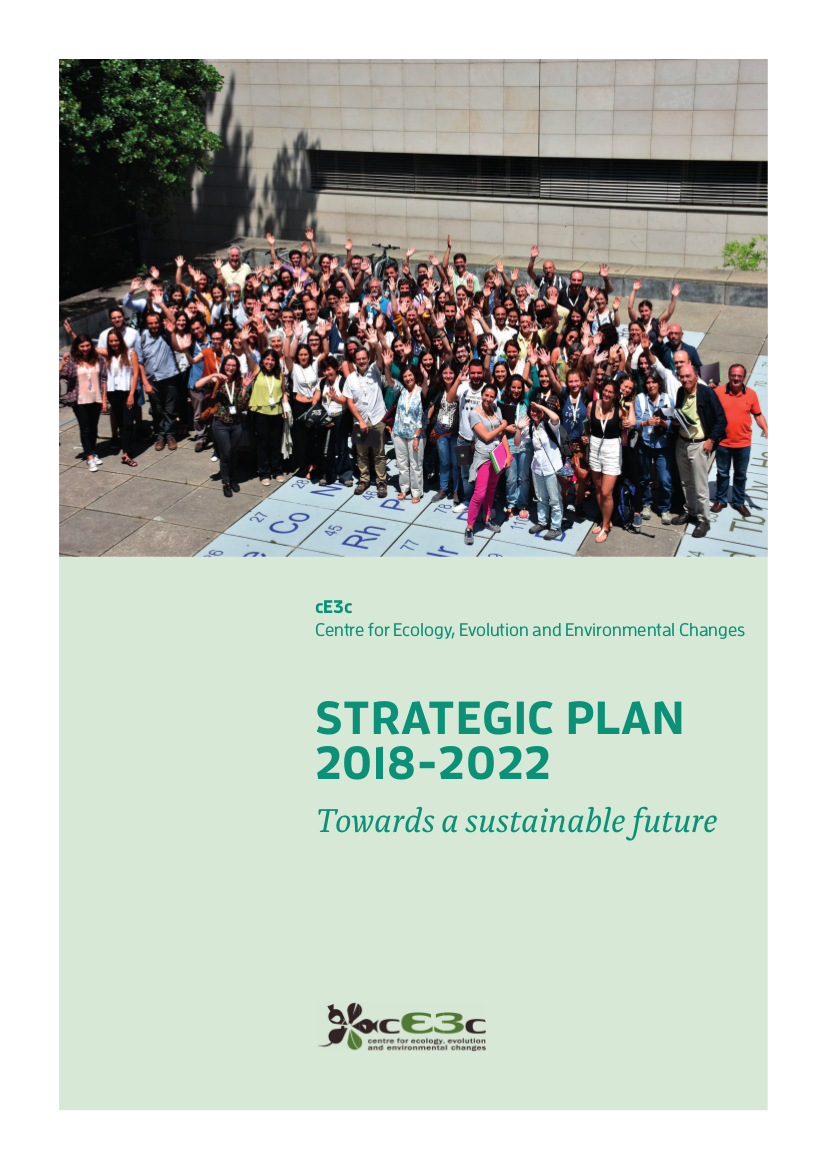Strategy

TOWARDS A SUSTAINABLE FUTURE
cE3c’s Strategic Plan for 2018-2022 is available for download here.
Anchored in cE3c’s achievements and internationalization in 2013-2018, the Centre’s Strategic Plan for 2018-2022 is organized along six thematic lines that follow cE3c’s mission and vision:
VISION: To produce outstanding research in Ecology, Evolution and Environmental Changes – the Centre’s 3 E’s - and contribute with knowledge to address present and future societal challenges.
MISSION: To transform knowledge into action by integrating science with education and with society.
SIX THEMATIC LINES
To contribute knowledge and action aimed at future sustainability, cE3c will intensify internationally recognized applied and fundamental science organized around six core Thematic Lines:
TL1 - Integrated ecological assessment of environmental change on biodiversity;
TL2 - Evolutionary processes that shape biodiversity and adaptation to environmental changes;
TL3 - Sustainable management strategies for high-nature-value farmlands;
TL4 - Green and blue infrastructures for urban sustainability;
TL5 - Human health: linking evolutionary history, environment and physiology; and
TL6 - Climate services.
Knowledge and expertise have been, and will continue to be during the next five years, leveraged by successfully integrating expertise between cE3c’s 13 research groups, which published 106 intra-centre collaborative papers between 2015 and 2018. Broadening international scientific collaborations is also a priority, expanding from our 41 recent and/or ongoing European projects and networks.
cE3c’s contribution to future sustainability also involves transforming knowledge into action by offering advanced training, engaging in outreach, promoting knowledge co-production and transfer to stakeholders, innovation, and policy advice. cE3c will continue to: support the generation of independent and motivated scientists; address crucial points raised by International and European Agendas and Institutions (such as the UN's Convention on Biological Diversity, UN's 17 Sustainable Development Goals, and the International Union for Conservation of Nature); support and inform governmental agencies at regional and international levels; and contribute to industry and ecosystem services optimization (e.g. microbial driven processes for agriculture and greenhouse gas reduction).
We will continue to communicate science to non-specialist audiences, contributing to citizen-science programmes, exhibitions, and other broad-audience outreach activities.
